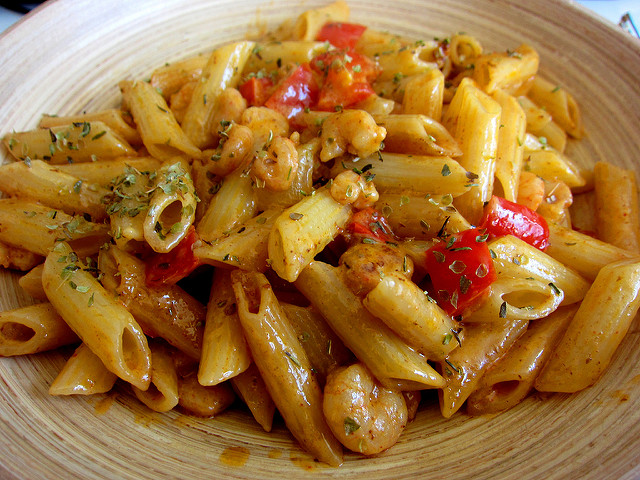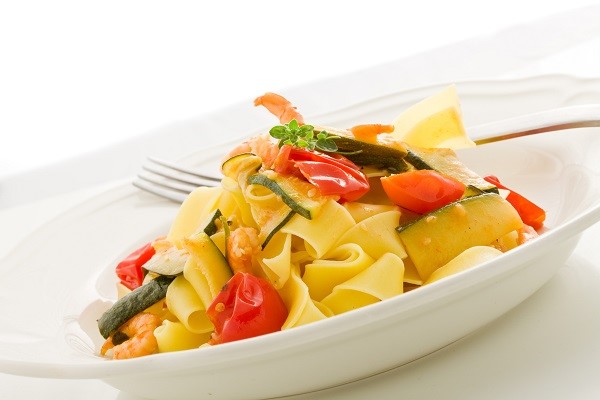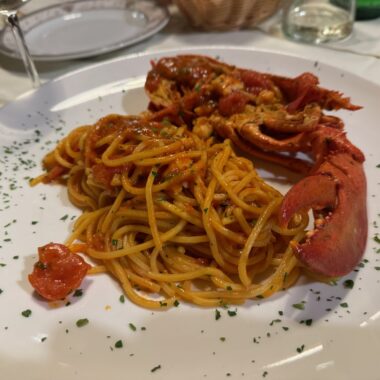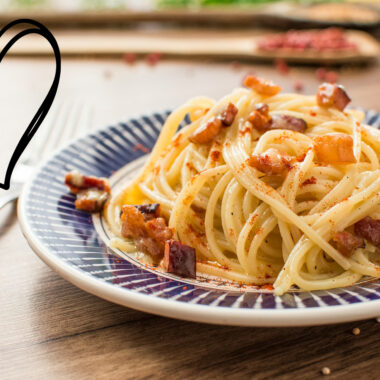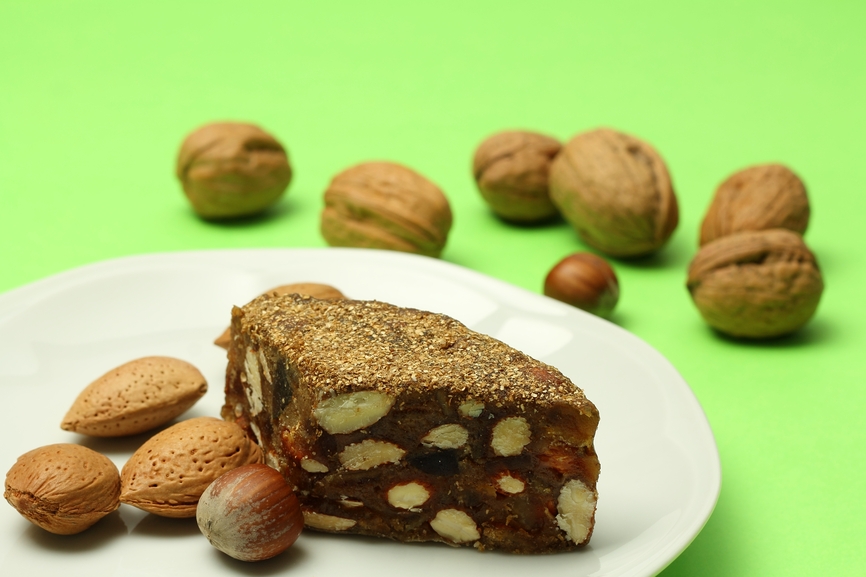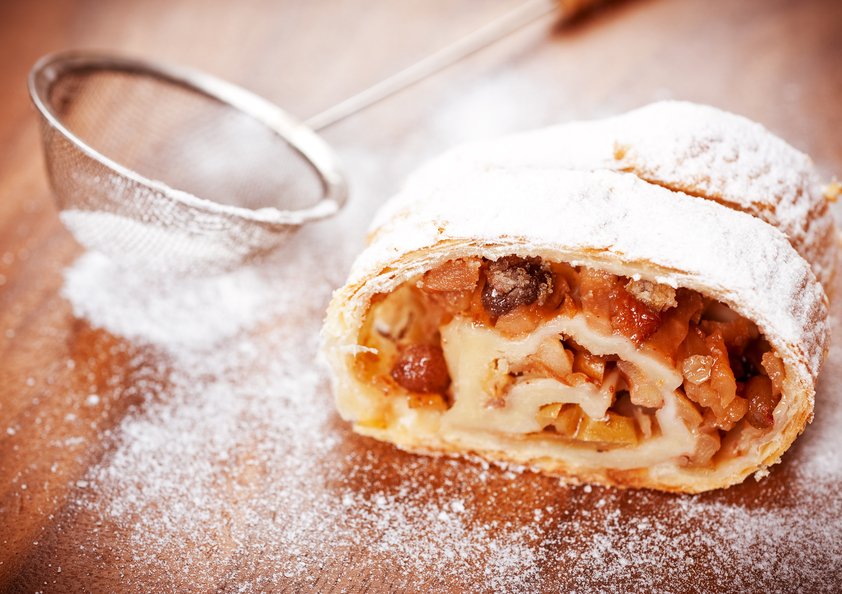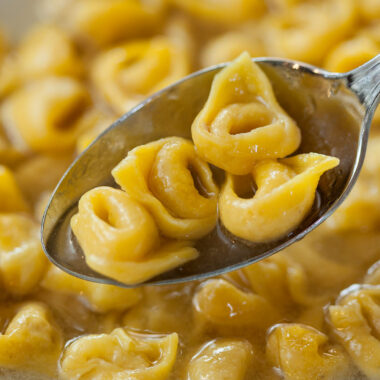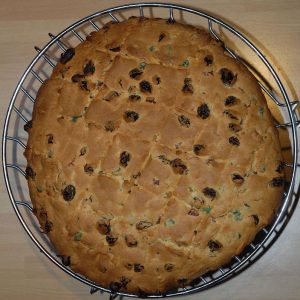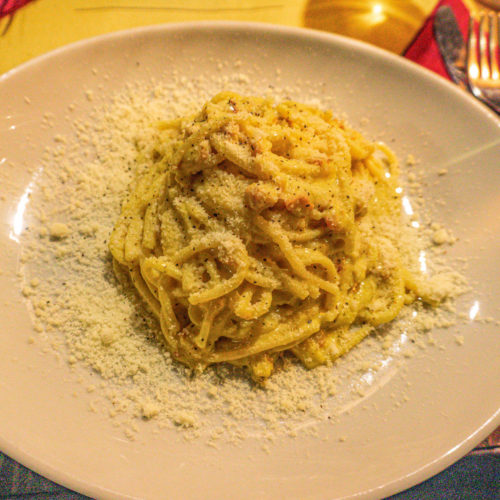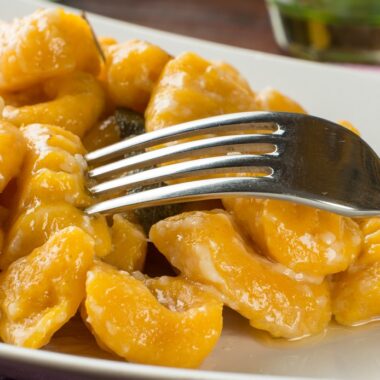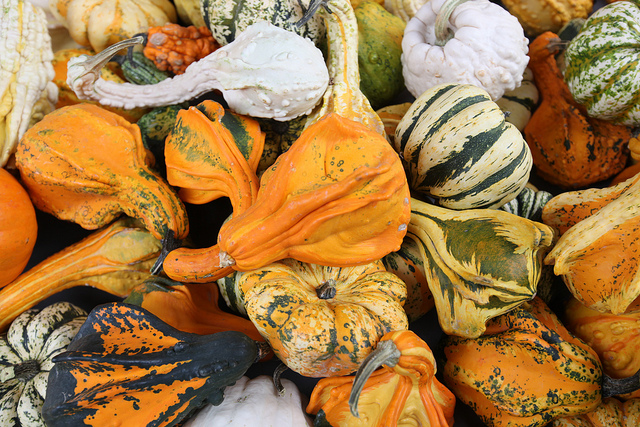Finally science supports Italians: pasta doesn’t make you fat, guys!
Thing is, who doesn’t love pasta. Pasta is the ultimate comfort food, the thing we Italians go to when we are in a mood and nothing can console us: spaghettini and tomato sauce, topped with loads of parmesan. It’s really that simple to get happiness back.
In the light of the above considerations, the recent research according to which pasta is, in the end, not that bad for your diet put a huge smile on Italy’s face.
In truth, something on the same line had appeared already last year, but this time, scientists got involved, making it all the more official. Let’s see what they said exactly…
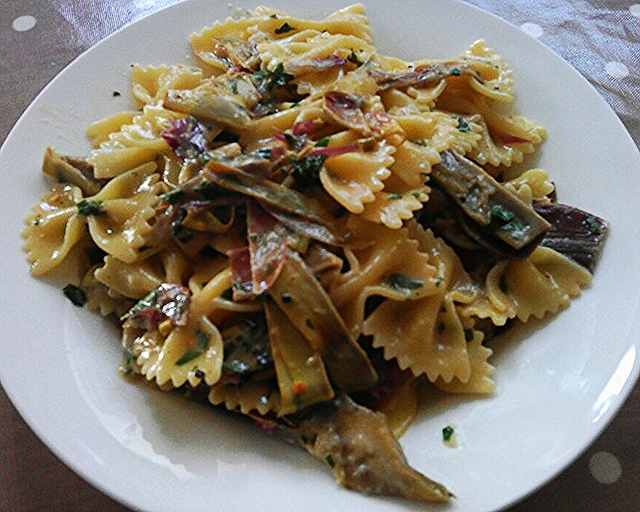
option, which won’t make you fat. Just keep an eye on the portions! (Luca Sbardella/Flickr)
There’s hope for pasta lovers: pasta doesn’t make you fat!
The Department of Epidemiology of the IRCSS Neuromed in Pozzilli (Isernia) conducted a research recently published on the scientific journal Nutrition and Diabetes, according to which pasta is not only not dangerous for health, but can effectively help people control their weight. So pasta doesn’t make you fat and it’s good for you.
The study highlighted how consuming pasta on a regular basis is associated both with lower BMI and lower abdominal circumference which, many of us know, is synonym of good health. In an interview with the Huffington Post, the head of the molecular and nutritional epidemiology lab at the above mentioned IRCSS Neuromed, Licia Iocaviello, vehemently defended pasta saying that “whoever avoids it not to put on weight is wrong.” The problem, Iocaviello continues, is that we’ve been wedging war against carbs, but not all carbs are born the same, and many ignore this piece of essential information.
Pasta is a complex carbohidrate, which means it’s good for us and we shouldn’t exclude it entirely from our diets, even when we’re trying to slim down. Others are the carbs we should stay away from, namely simple sugars such as those found in candies and sodas. In any case, even if spaghetti don’t make us necessarily fatter, moderation remains key here. Iocaviello highlights the importance of the Mediterranean diet as an example of how pasta should be introduce and kept in our daily eating habits: “pasta can and should be consumed but, as the Mediterranean diet teaches us, always with moderation and balance. Of course – Iocaviello continues – we’d put on weight if we only ate pasta, but it’s easy to keep extra weight at bay by following some simple rules.”
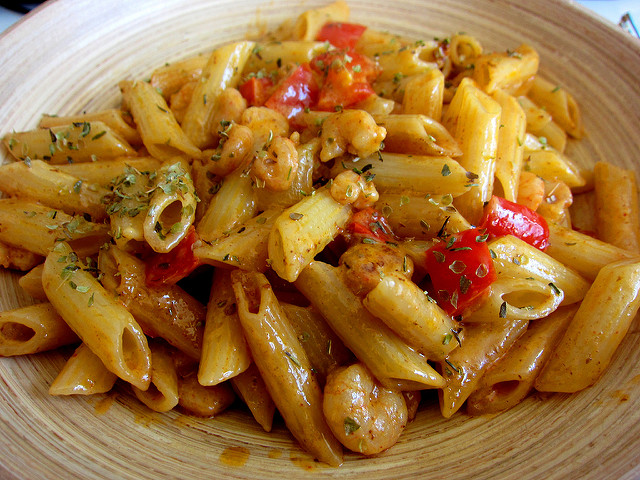
What Rules?
Pasta can be healthy for us: that’s great news, but Italians sort of knew it already. What really makes pasta fattening, we always say, is what you eat it with: “Italian-American Alfredo, delicious carbonara, popular amatriciana may be a no-no because of the high content of fats in their sauces, but if I eat a simple pasta al pomodoro with a sprinkle of parmigiano, I’m good, right?”. Right.
Or maybe not, because key to eating pasta in a healthy way is portion size. Nutritionists say we should eat only enough pasta to cover for about 10% of our daily caloric intake, which roughly means 55 gr for women and 70 gr for men. Now, think that the average Italian shoves on his or her plate anything between 100 and 130 gr of pasta per portion. Even when you get recipes off books, pasta portions are always marked around 100 gr per person. Boys, look at those mezzepenne al pomodoro and take a third of it off. Girls – I’m shuddering while writing it: you’ve to throw in the bin half of your usual portion.
So, we can eat pasta, but in tiny, bird-like portions.
There: my dietician was right.
Of course it is not all so bad: you can add vegetables to make things better, which is particularly simple if you’re using tomato as your main sauce. Add some grilled eggplants and you can have a light version of pasta alla Norma, or throw in a bit of tomato paste, loads of spinach and a can of tuna for a sauce which makes for an entire meal. Yeah, you just need to substitute half of the pasta with vegetables.
There are many other tricks to make pasta healthier for you. For instance, you should always cook your pasta “al dente,” because it has a lower glycemic index, which means you’ll feel fuller, for longer. Pasta al dente’s also more easily digested and, well, it just tastes much better, in my humble opinion. Always add the salt when the water boils and before adding the pasta.
Long varieties, like spaghetti, bucatini or tagliatelle, have a lower glycemic index than their short couterparts so, when debating between rigatoni and fettuccine…go for the latter.
One last piece of advice: always use olive oil when dressing your pasta. In other words, add it to your sauces, or just have a lovely plate of pasta simply dressed with it. Good quality olive oil inhibits the absorbing of sugars, making us feel less quickly the pangs of hunger during the rest of day.
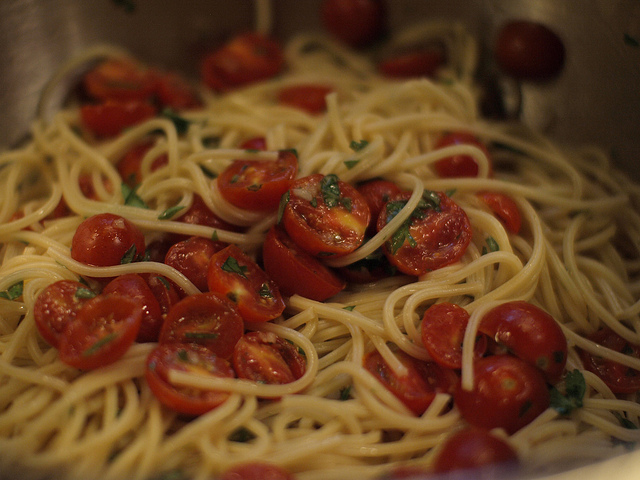
(Ted Major/Flickr).
Sergio Brighenti, professor of Sciences of Nutrition at the Università di Parma and president of the Italian Society of Human Nutrition, declared in an interview with the Italian daily Il Giorno that “eliminating entirely pasta from our diets would be wrong. When paired with a light dressing, such as olive oil, it makes you feel full without being dangerous for the waistline.” Brighenti continues on the same lines as Iocaviello’s, underlining how getting rid of pasta from our diets would be ultimately a very bad idea.
So, pasta doesn’t make you fat but, once again, it all lies in what we eat pasta with: vegetables, fish, olive oil are perfect ingredients to prepare a nice sauce. Just stay clear of butter, cream and meats.
So, yes: eat your pasta happy. It seems that, in the end, you’re truly going to make your health – and not only your belly – a favour.
Now… if only portions could be bigger…
